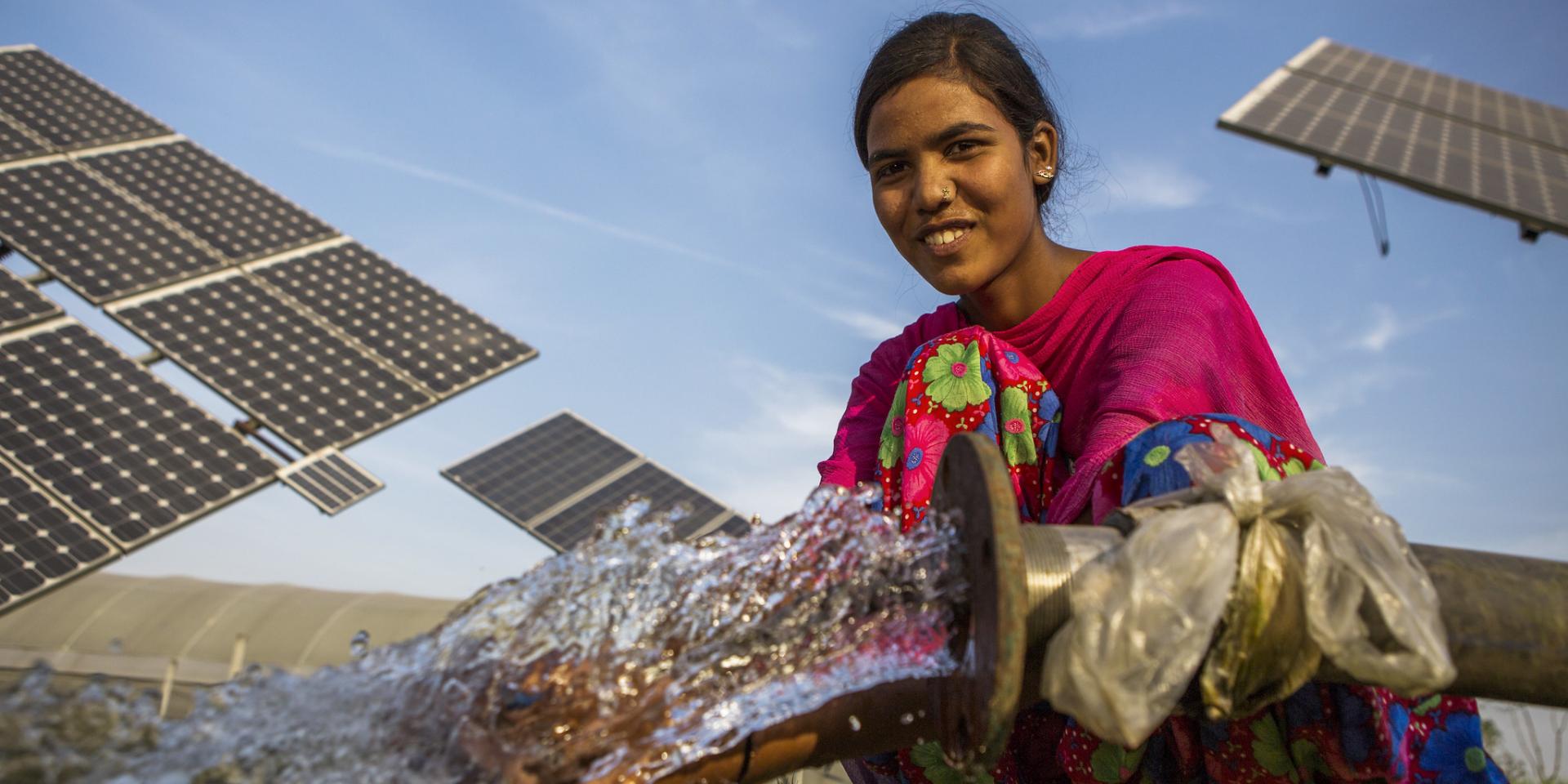Gender Equality and Human Rights in Climate Action and Renewable Energy

This self-paced e-course provides an overview of the interlinkages between gender, human rights, climate change, and renewable energy. It provides participants with the specific knowledge and tools to integrate and implement gender equality in renewable energy access and entrepreneurship, as well as related gender-responsive and human rights-based approaches in climate change mitigation and adaptation measures.
This course is in English
What will you learn?
After completing the course, participants will be able to:
- Describe the nexus between gender equality, human rights, renewable energy, and climate change
- Explain how a gender-responsive and human rights-based approach in climate action leads to economic, social, and environmental benefits
- Recognize international and sectoral commitments on gender equality, human rights, and climate change and their relationship with national priorities and policies
- Identify entry points for gender and human rights in renewable energy and climate policy and action
- Select and apply tools and approaches for the promotion of human rights-based and gender-responsive climate action
- Discuss targeted opportunities for women in climate change and renewable energy, with a particular focus on multi-stakeholder collaboration, renewable energy entrepreneurship, and access to finance.
What resources do you need to do it?
Reliable internet access
More about this training
The course includes 3 modules. These have specific learning objectives and contain a broad range of features such as videos, case studies and exercises. Each module is divided into 4 lessons of around 30 minutes each.
The course provides learners with the option to choose and combine different thematic modules. There are two main learning pathways available that participants can select based on their interests. Pathway 1 is particularly intended for renewable energy experts and professionals of financial institutions. Pathway 2 is designed specifically for climate change and green economy policymakers. Both learning pathways have a common introductory module. Participants can also opt to take all three modules.
The course is of particular interest to the following audiences:
1. National policymakers, government officials and stakeholders in sectors of climate change, gender equality and renewable energy, as well as regional actors;
2. Renewable energy service providers and officials of financial institutions in renewable energy entrepreneurship;
3. Anyone interested in learning more about gender equality and human rights-based approaches in the renewable energy sector.
Get a Certificate
Level 1: Each module in the course has a final quiz to assess participants’understanding of the content. Participants will receive a completion badge via email upon successful completion of each quiz.
Level 2: Participants who pass all the final quizzes within their learning pathway will receive a UN certificate of completion, where successful completion will require a score of 70% or higher with a maximum of 3 attempts at each quiz. Upon successful completion of the quizzes, participants will be able to download their certificate – or their 2 certificates if they followed all three modules – from the “Certification” section of the course’s webpage.
Access now
https://unccelearn.org/course/view.php?id=142&page=overview